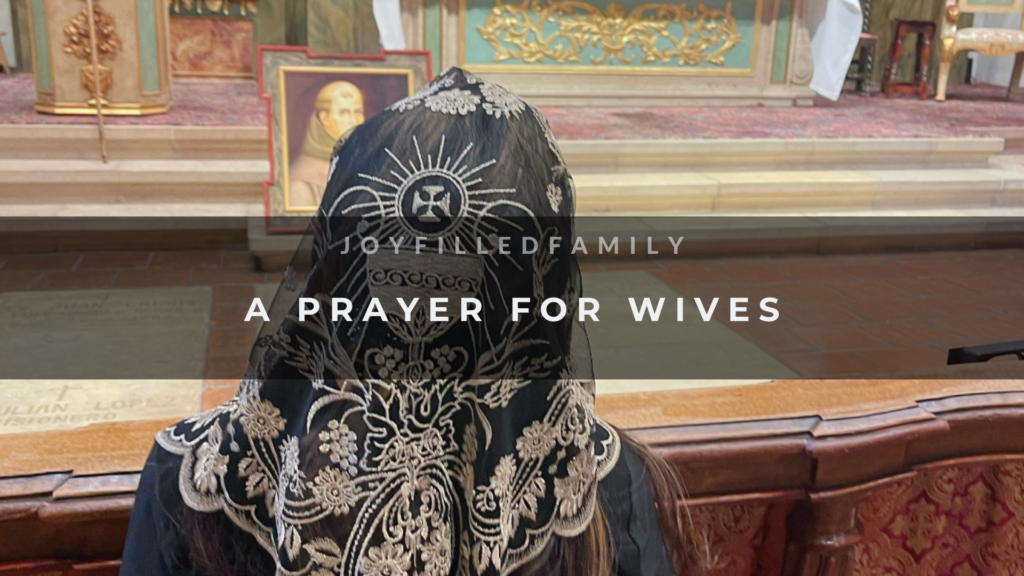Day Two of the Home Education #hsnovena

Below is a prayer for mothers on day two, adapted from #MotherLoveAManualforChristianMothers by Pius Franciscus OFM, Cap (1888).
Join the spiritual community of mothers in praying this novena for the discernment of God’s Will in our families. HOME EDUCATION NOVENA

➕
My Vocation as Wife
Most Holy Trinity, Father, Son and Holy Ghost, You have instituted marriage in this earthly paradise and have, in the New Law elevated it to the dignity of a Sacrament, attaching to it many graces.
Grant to n. and me the grace to live lives of holiness and in so sacred a state and, by the practice of Christian virtues, to act always as is becoming a Christian couple.
As your holy priest joined our hands at the altar, so may we journey through life with one heart and one soul, tasting its pleasures with moderation, enduring its sorrows with resignation and, at all times, mutually assisting and consoling each other.
May true and holy fear strengthen us to restrain the low desires of the flesh, and to serve You uprightly with pure hearts and eyes and lips, in mutual esteem and forbearance. Anoint me with your Holy Grace that I may attain the particular virtues and wisdom to fulfill my vocation as n.’s wife in imitation of your own most holy spouse, the Blessed Virgin Mary.
Grant that the children born of our union may be pure of heart and well disposed in mind, and that they may gladly walk in the way of Your Commandments.
Teach us to be faithful images of the Holy Family of Nazareth, of Joseph, the blessed foster-father, and of Mary, the most devout and blessed Mother of the Child Jesus, that we may be made worthy to live under their protection, to die in their favor, and to be forever blessed in their society. Amen.
Receive also Almighty God these specific requests related to my marriage and my role as wife…and transform me by the grace of the Holy Ghost.
Our Father, Hail Mary, Glory Be
+
You can find the printable on my site. There you can also find links to talks on education from priests of tradition.


